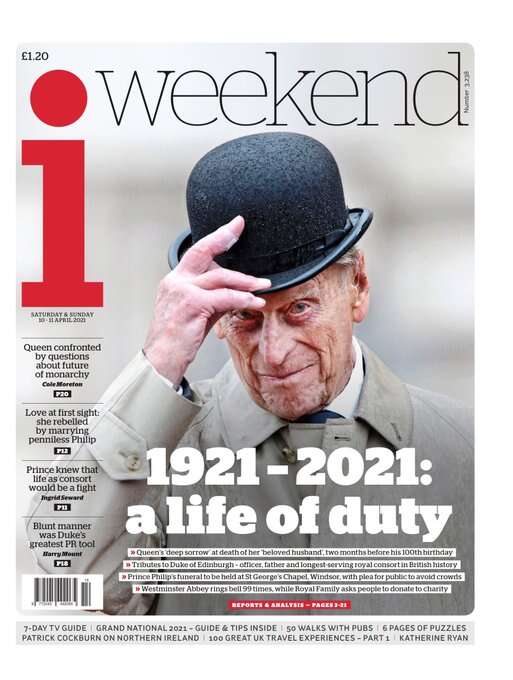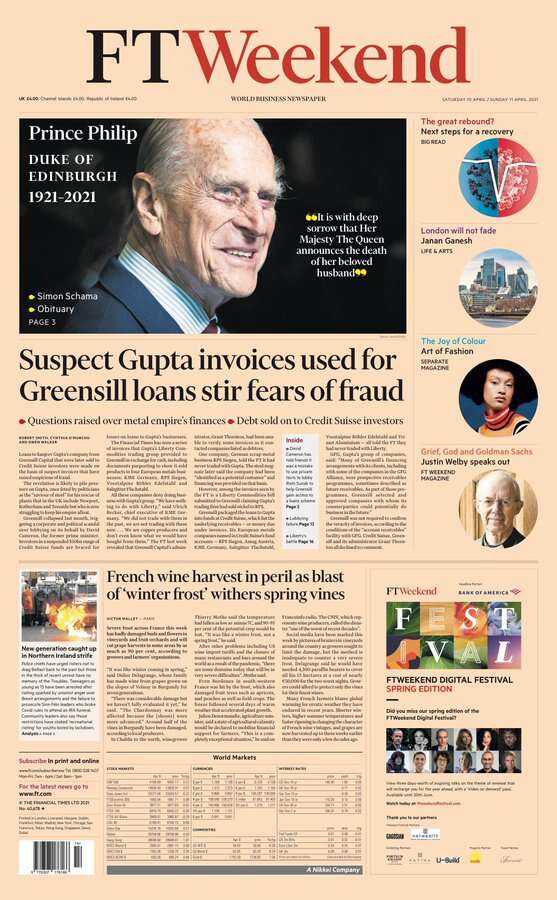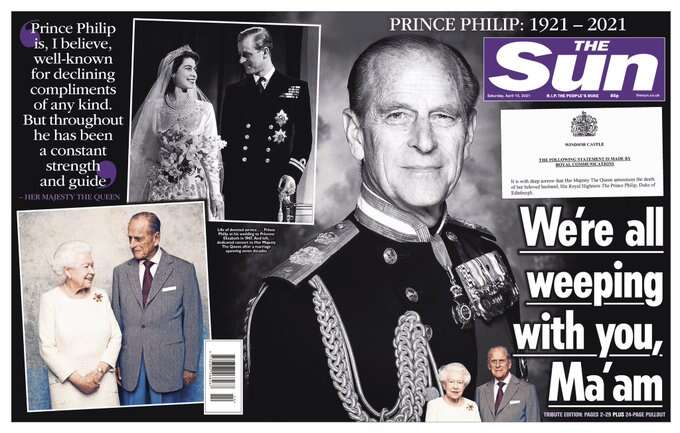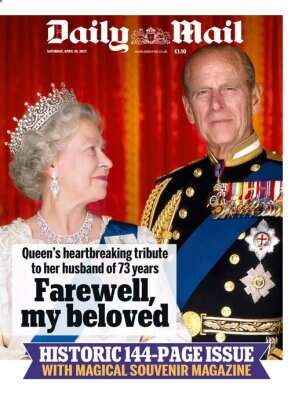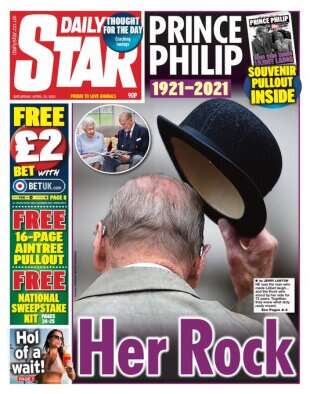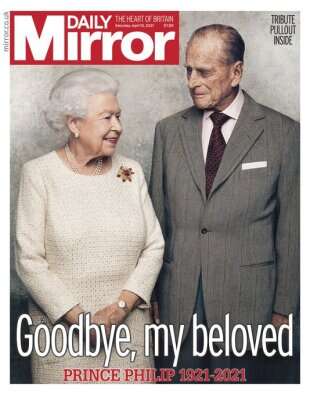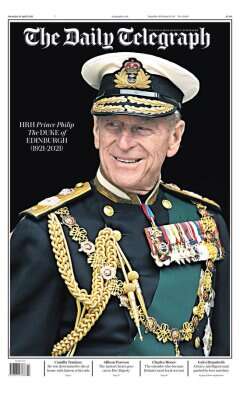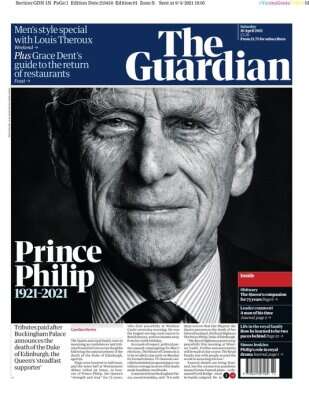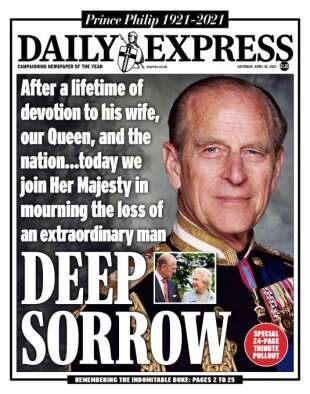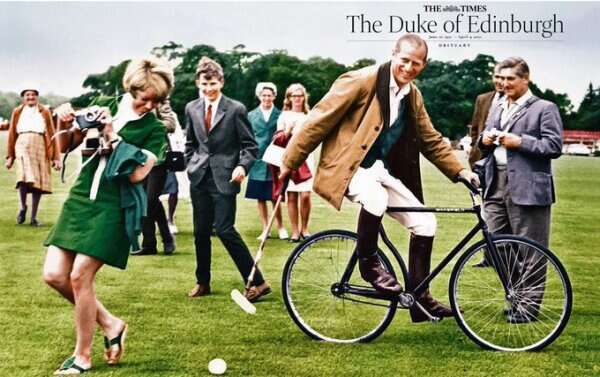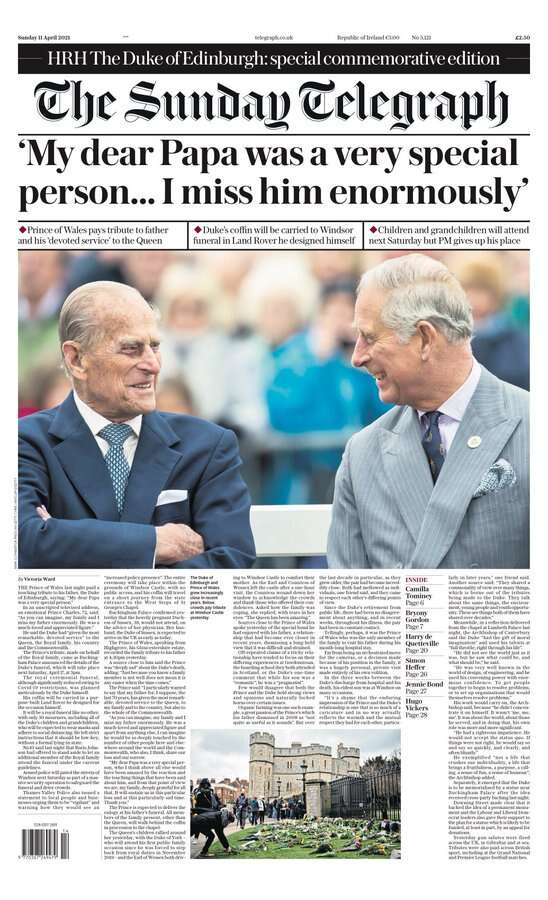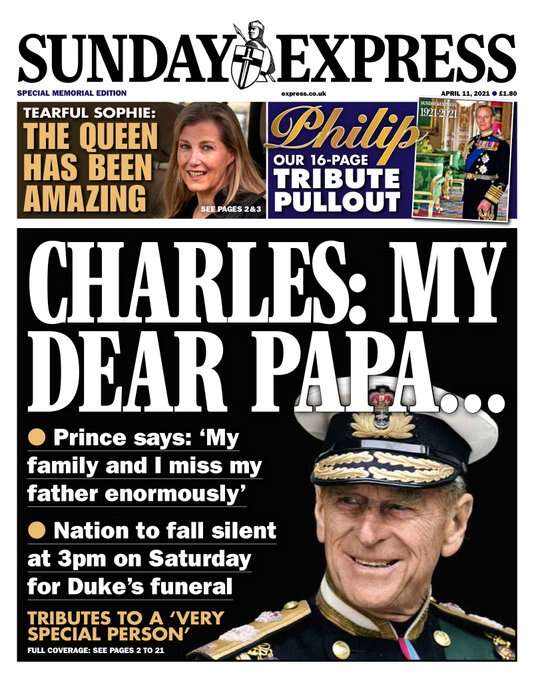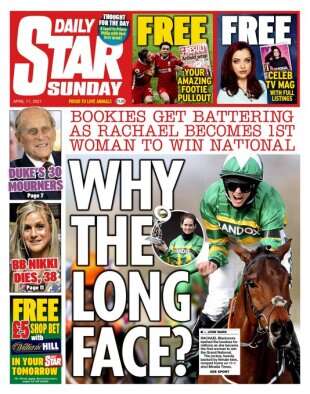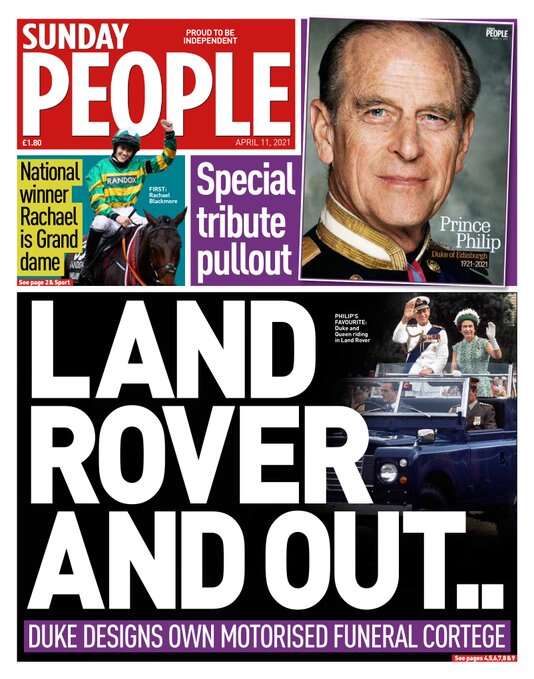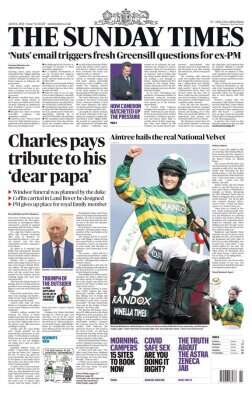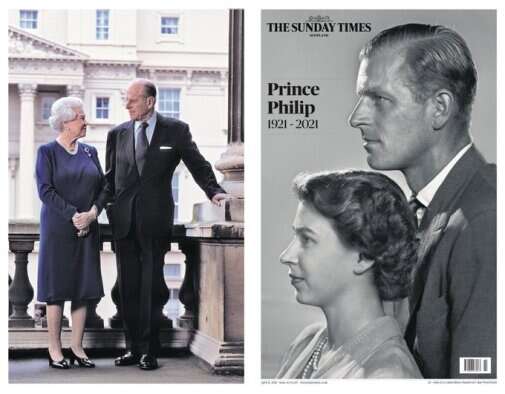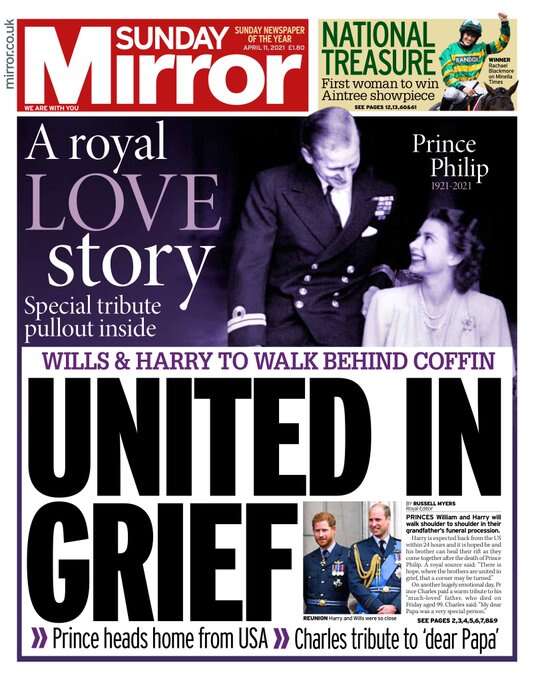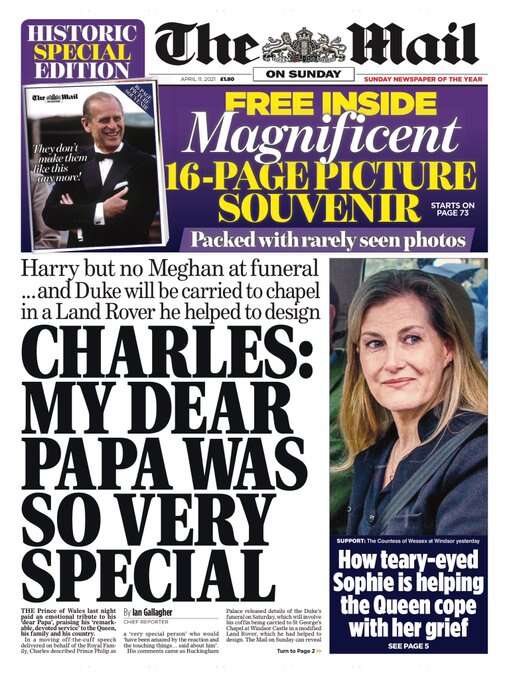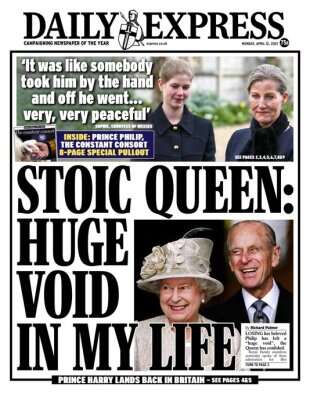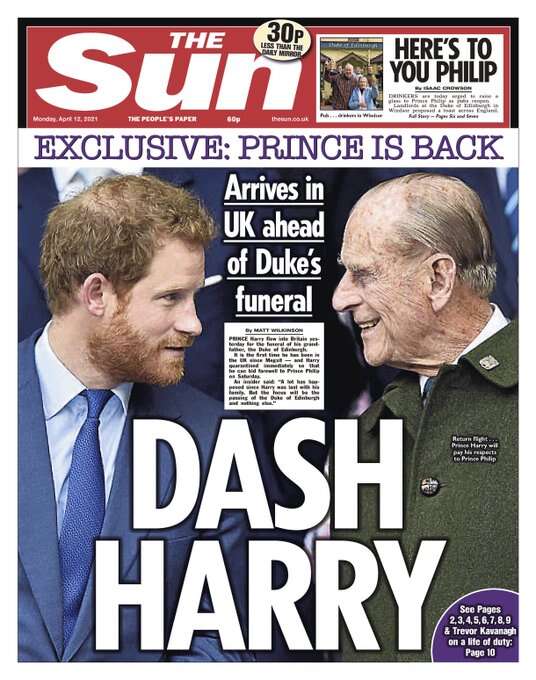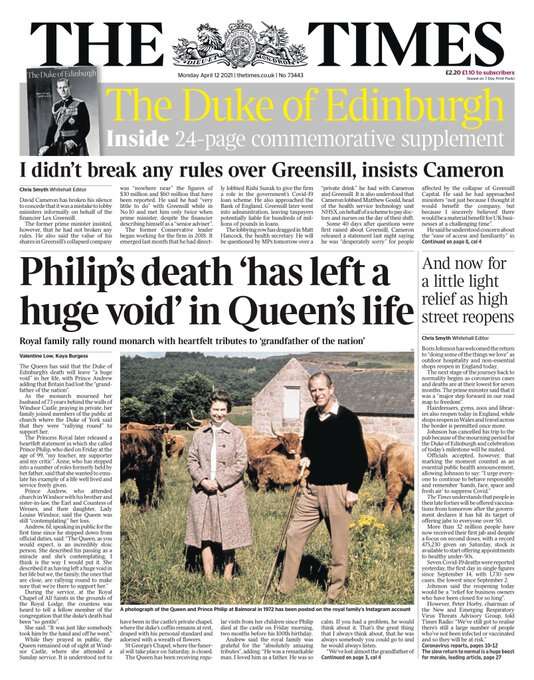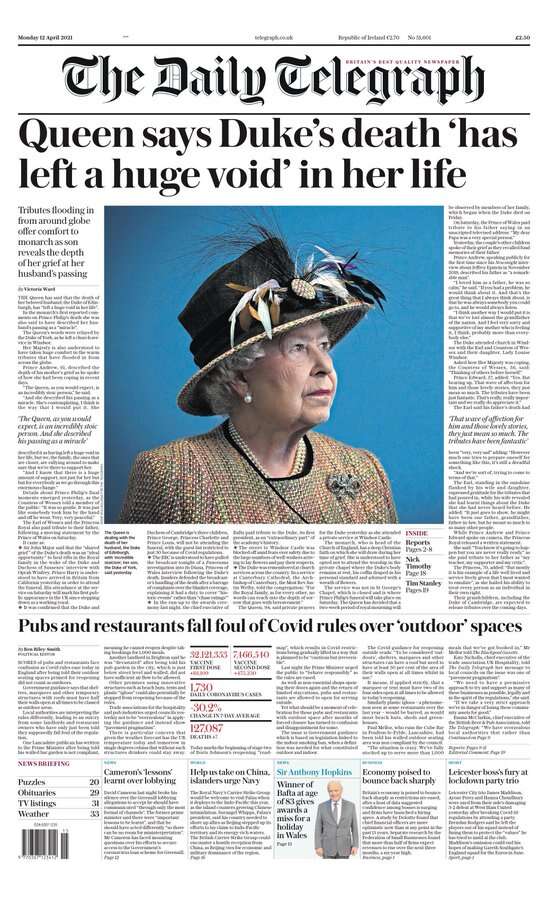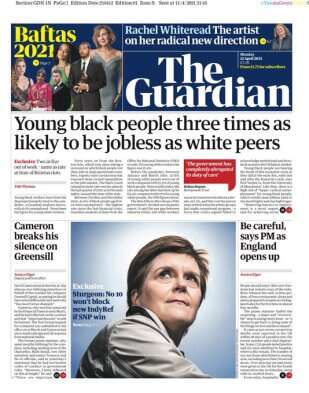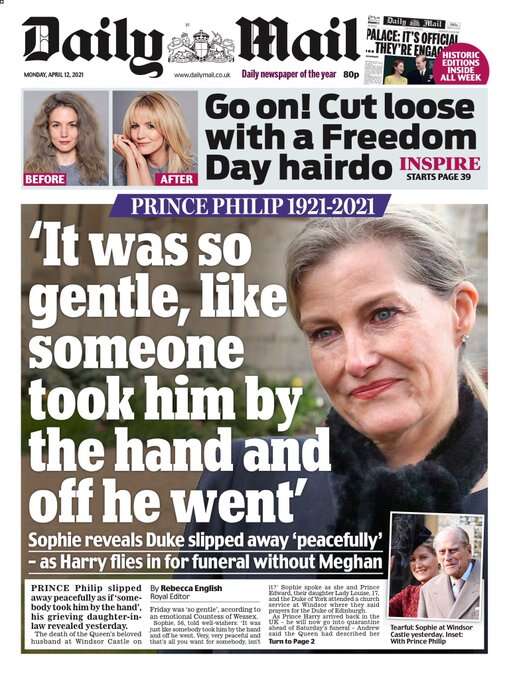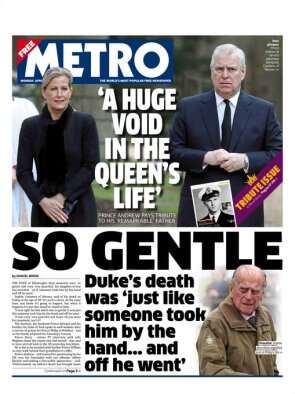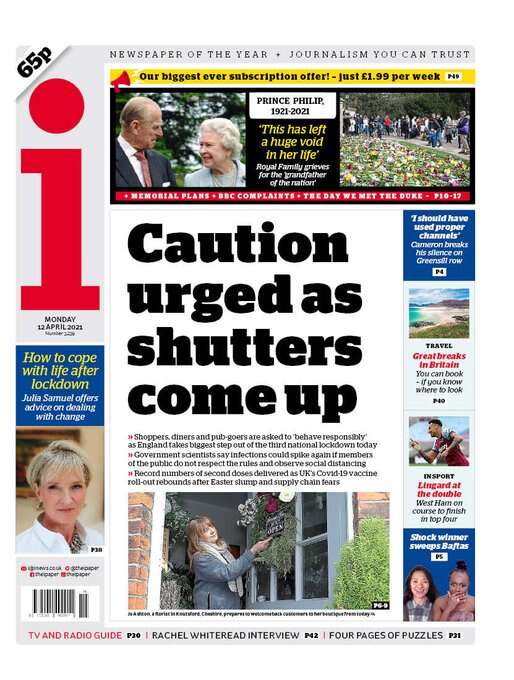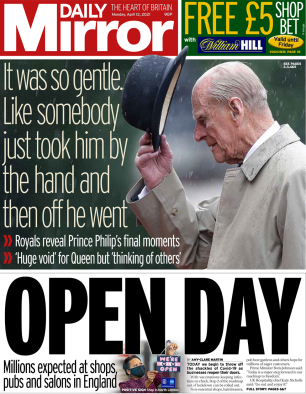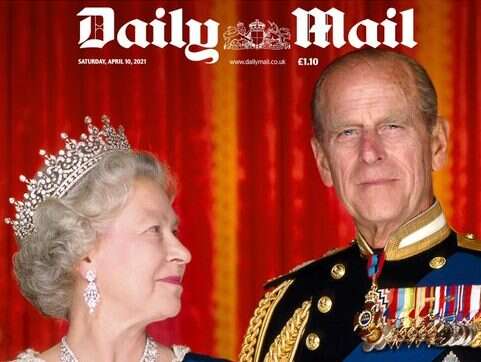
Originally published 12/4/21
The UK’s national newspapers together had produced more than 540 pages of print coverage of the death of Prince Philip by Monday morning.
The Duke of Edinburgh’s death aged 99 at Windsor Castle on Friday morning has graced every front page since, with the exception of Monday’s Guardian and Financial Times.
At least 348 of the main pages of the UK’s national newspapers were dedicated to the duke on Saturday, Sunday and Monday – with a further 201 pages in special supplements and pull-outs, Press Gazette analysis shows.
Saturday’s Daily Mail (pictured) produced the most dedicated coverage, according to Press Gazette analysis of each newspaper, with the first 33 pages reserved for the duke as well as a 32-page souvenir supplement. The Saturday Daily Mail is the biggest-selling paper in the UK at 1.6m copies each week (ABC).
Scroll down for national newspaper front pages since Prince Philip’s death
The Sun on Sunday dominated in the Sunday stakes, with 27 pages and a 24-page pullout, while the Mail again produced 15 dedicated pages on Monday.
Prince Philip’s death was the first major loss to the UK monarchy since the Queen Mother’s passing in 2002. The media landscape has changed significantly since then with the pivot to digital and growth of social media and streaming.
On Friday most of the Fleet Street websites hit publish on a wealth of prepared stories within minutes of the news breaking. The Times quickly had 11 articles at the top of its homepage, while Mail Online had some 20.
One national newspaper worker told Esquire it was an “especially easy death” considering Philip had been in hospital a month earlier, meaning newsrooms were well-prepared.
A Guardian article published in 2017 about Operation London Bridge, the secret plans for the Queen’s death, revealed the discomfort of some journalists at the level of coverage given to the deaths of senior royals. “There is one story which is deemed to be so much more important than others,” a former BBC Radio 4 Today producer complained.
BBC coverage ‘reflected its role as national broadcaster’
BBC One and BBC Two completely cleared their schedules for joint rolling news and tribute coverage on Friday, with BBC Four suspended altogether. BBC One got back to a normal schedule at 2pm on Saturday.
But the BBC received so many complaints about the scale of its TV coverage it launched a unified form for people to fill in, utilised on occasion for events receiving a high volume of complaints.
In a Yougov poll of 4,578 people, 57% said there had been too much coverage. A third (32%) said it was about right and 2% said there had been too little.
Those between 50 and 65 were most likely to say there had been too much coverage of the Duke’s death (61%) compared to 18-24 year olds (49%). The youngest age group was also most likely to say there had not been enough coverage (5% vs 0% of over-65s).
As of Thursday lunchtime, the BBC had received 109,741 complaints about the amount of coverage it aired.
The BBC’s response to the complaints said: “The passing of HRH The Prince Philip, Duke of Edinburgh was a significant event which generated a lot of interest both nationally and internationally…. We do not make such [schedule] changes without careful consideration and the decisions made reflect the role the BBC plays as the national broadcaster, during moments of national significance.”
The BBC also received 433 complaints after Andrew Marr compared the duke to an “Indian bride”, a further 130 claiming that presenters were not appropriately dressed on Saturday’s BBC Breakfast, and 119 complaining that it was inappropriate to have commentary over the 41 gun salute.
TV ratings analysis by Deadline showed BBC One lost 6% of its audience on Friday night compared to the week before, while BBC Two was down 65%. The only separate programming on BBC Two was one BBC News programme and Newsnight.
ITV also lost 60% of its audience while Channel 4, which produced an extended news programme but largely stuck to its original programming, was down 8.5%.
BBC News presenter Martine Croxall was the one to break the news for the public service broadcaster. Within minutes, as she voiced over a package of images of the duke, she removed her necklace and put on a black cardigan.
BBC radio stations simulcast BBC Radio 4 for several hours on Friday afternoon before returning to a muted version of their normal programming.
Saturday 10 April
Sunday 11 April
Monday 12 April
Email pged@pressgazette.co.uk to point out mistakes, provide story tips or send in a letter for publication on our "Letters Page" blog

